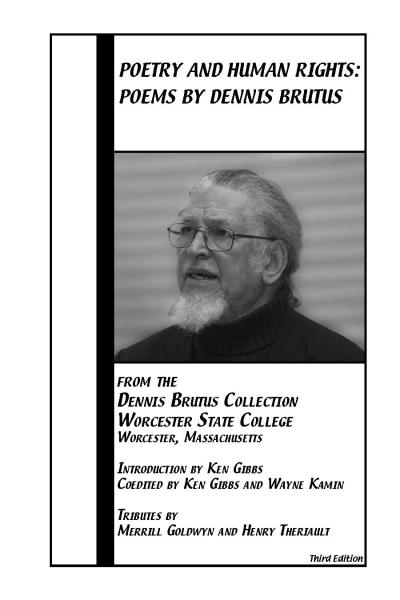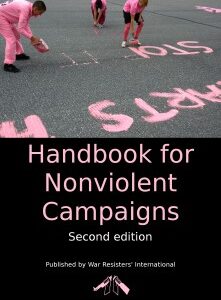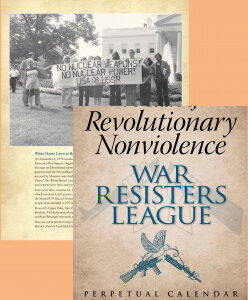Dennis Brutus’ Passionate Peace

Poetry and Human Rights:
Poems by Dennis Brutus
from the Dennis Brutus Collection (Third edition)
Edited by Ken Gibbs and Wayne Kamin
Worcester State College Press, 2010, 100 pages,
Free download at www.worcester.edu/dbrutus
When the War Resisters League decided to honor South African poet Dennis Brutus, among others, with our annual peace award at the end of 2009, we had little expectation that it would be one of the last appreciations he would receive. Brutus’ passing in December 2009, one week before the death of another 2009 honoree—Pan-African pacifist Bill Sutherland (my own mentor, colleague, and stepfather)—left a chasm in the world of culture and politics. Brutus was one of those unique spirits who could not correctly be called an “activist poet.” For Brutus, those two words were indelibly interconnected, and using them together would be redundant. He lived his poetry in all of his actions and resistances and in every word he uttered to fight against injustice and for peace. His poems were written on scraps of paper next to discarded meeting notes or napkins from airplanes taking him from one protest to the next.
It is therefore very exciting that a new volume of unpublished works by Brutus has arrived fresh on the scene. At once a rarity (one can barely find it at corporate shops or internet sources) and accessible to all via free web download, this latest addition to Brutus’ wonderful oeuvre is a delight. Published by and compiled from the vast collection of Brutus’ papers lovingly housed at Worcester State College (WSC) in Massachusetts, Poetry and Human Rights: Poems by Dennis Brutus is a wonderful collection both for those first coming to know Brutus’ work and those well acquainted with his writings and activism.
Editors Ken Gibbs and Wayne Kamin have endeavored to make Poetry and Human Rights an anthology of unpublished literature as well as a resource guide to the Brutus Collection. It begins with reflections on Brutus’ life and work, which help orient the reader to the context of the writings. The second and third sections of the book contain poems, prose, and quotes written over a period of 30 years. Some of the writing is of substantial length and complexity, but many of the poems are short, quick pieces meant to explain, expose, and inspire. Written from every corner of the globe, the pieces focus on the major themes of Brutus’ life: love, beauty, and the need to struggle against empire. One short poem is characteristic of these sentiments:
Recognize: Comfort
in the U.S. is purchased by
anguish elsewhere.
The book concludes with several assessments of Brutus and his connection to the WSC Center for the Study of Human Rights. There is also a detailed overview of the Brutus Collection, housed at Worcester’s Learning and Resource Center. As a whole, Poetry and Human Rights is a resource not to be missed. Every Brutus enthusiast will rejoice in the words of our movement poet laureate. And every peace and justice activist not acquainted with his work will appreciate the power of a politics lived with great passion.

 Handbook for Nonviolent Campaigns, 2nd Edition
Handbook for Nonviolent Campaigns, 2nd Edition  WRL Perpetual Calendar
WRL Perpetual Calendar